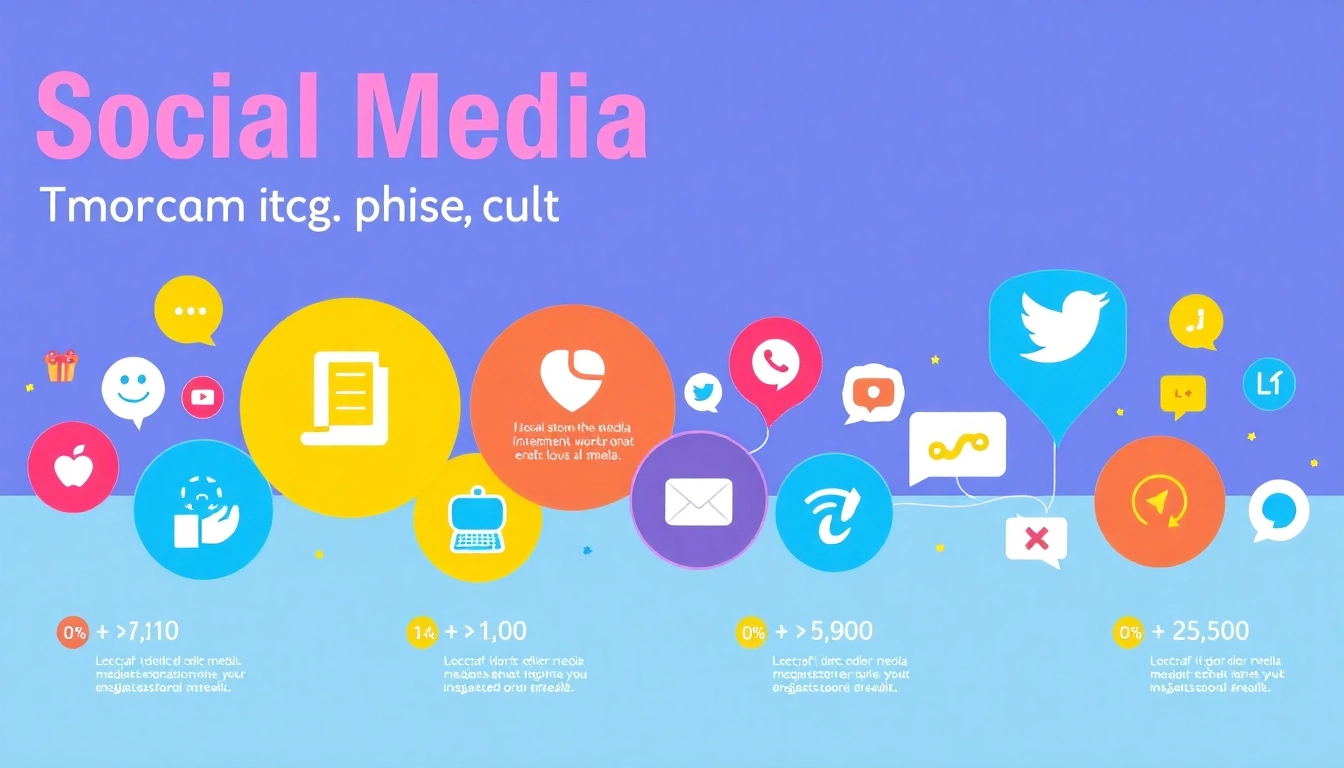Understanding AI Marketing Tools
What Are AI Marketing Tools?
AI marketing tools are software systems and applications that leverage artificial intelligence to enhance marketing efforts and optimize business processes. They range from data analysis tools to customer engagement solutions that can automate repetitive tasks, analyze customer data, and build insights that drive better decision-making. In a world where consumer behavior is constantly evolving, companies are increasingly turning to AI marketing tools to remain competitive and meet personalized marketing demands.
The Importance of AI in Marketing
The integration of AI in marketing is not merely a trend; it’s a fundamental shift in the way businesses interact with their customers. AI enables marketers to harness vast amounts of data to glean actionable insights, automate marketing processes, and create more personalized experiences for consumers. With AI’s predictive capabilities, businesses can anticipate customer needs and tailor their marketing strategies accordingly. The demand for faster, more efficient marketing practices continues to rise, making AI marketing tools critical in shaping the future of the industry.
Types of AI Marketing Tools
The landscape of AI marketing tools is diverse, encompassing various categories designed for specific functions:
- Customer Relationship Management (CRM) tools that use AI to enhance customer interactions.
- Content Creation tools that generate high-quality marketing content automatically.
- Predictive Analytics tools that analyze existing data to forecast future consumer behaviors.
- Chatbots and Virtual Assistants that improve customer service and response times.
- Email Marketing tools that utilize AI to target customers with personalized messages.
- Social Media Management tools that aid in scheduling, analytics, and content recommendations.
- SEO Optimization tools that help refine digital content to rank higher in search engines.
How to Choose the Right AI Marketing Tools
Assessing Your Business Needs
Before diving into the world of AI marketing tools, it’s crucial to assess your business’s specific marketing needs. Identify what challenges or gaps exist in your current marketing strategies. Are you struggling with data overload? Is personalization a major concern? By pinpointing your priorities, you can select tools that will have the most impact on your business efficiency and effectiveness.
Evaluating Features and Pricing
When considering various AI marketing tools, it’s essential to evaluate not just their features and functionalities but also their pricing structures. Comprehensive tools may have higher upfront costs but could prove more cost-effective in the long run due to time savings and increased conversions. Look for tools that offer a free trial or demo to fully understand their capabilities before committing financially.
Customer Reviews and Recommendations
One of the best ways to gauge the effectiveness of any AI marketing tool is through customer reviews and recommendations. Research user experiences on forums, review sites, and social networks to understand the pros and cons of each tool. Connecting with peers in your industry might also yield valuable insights about which tools have performed well for them.
Top AI Marketing Tools in 2025
Industry Leaders to Consider
As of 2025, certain AI marketing tools stand out due to their robust features and user bases:
- AI marketing tools like HubSpot provide comprehensive CRM functionality alongside powerful marketing automation features.
- Mailchimp, which integrates AI-driven audience segmentation and personalized recommendations.
- Jasper AI, known for its copywriting capabilities that enhance content creation.
- Canva, which has incorporated AI features to help users easily design marketing materials.
- Google Ads Smart Bidding uses machine learning to optimize ad performance, driving better ROI.
Emerging AI Tools to Watch
Aside from established platforms, several emerging AI marketing tools are gaining traction:
- Writesonic focuses on content creation and SEO optimization.
- FeedHive utilizes AI for automated social media management.
- Pencil uses AI to generate personalized video content for marketing campaigns.
- AdCreative.ai specializes in creating high-performance ads using AI-driven algorithms.
Comparison of Popular AI Marketing Tools
When comparing AI marketing tools, consider the following factors:
- Cost: What is your budget? Compare pricing plans and monthly subscriptions.
- Integration: How well does the tool integrate with your existing systems?
- User interface: Is the tool user-friendly and easy to navigate?
- Support and resources: What customer support options are available if you encounter issues?
- Performance metrics: Does the tool provide comprehensive analytics to measure the success of your campaigns?
Implementing AI Marketing Tools
Setting Up Your AI Marketing Strategy
The first step in implementing AI marketing tools is developing a clear strategy. Define goals like increasing engagement, improving conversion rates, or enhancing customer service. Ensure that your team understands the objectives and is trained properly on using the tools effectively. Create a phased approach for rollout to gradually integrate AI into your marketing efforts without overwhelming your team.
Best Practices for Use
To get the most out of your AI marketing tools, consider the following best practices:
- Start small: Begin with one or two tools that align closely with your goals, then scale up as your team becomes more comfortable.
- Stay data-driven: Continuously analyze performance metrics to fine-tune your strategies and maximize results.
- Encourage collaboration: Facilitate communication among team members to share insights and ideas on how to leverage AI tools effectively.
- Embrace learning: Regularly update your knowledge about AI tools and trends to stay competitive.
Measuring Success with AI Tools
The effectiveness of AI marketing tools can be quantified through specific performance metrics. Key performance indicators (KPIs) might include:
- Engagement rates on social media.
- Conversion rates of targeted campaigns.
- Customer satisfaction scores from automated interactions.
- Return on investment (ROI) for ad campaigns using AI optimization features.
The Future of AI in Marketing
Trends Shaping AI Marketing
As AI technology continues to evolve, several trends are emerging in the marketing landscape:
- Hyper-personalization: Leveraging AI to create tailored experiences based on real-time consumer data tracking.
- Predictive analytics: Technologies that can predict future customer behavior based on past interactions.
- Voice and visual search: With advancements in natural language processing and computer vision, optimizing for these search modalities is becoming critical.
- AI-generated content: The rise of AI tools that automatically create high-quality written, audio, and visual content that resonates with consumers.
Long-term Benefits of AI Integration
Implementing AI in marketing strategies offers long-term advantages, including:
- Improved efficiency by automating routine tasks.
- Enhanced customer experience through more timely and personalized interactions.
- Access to advanced data analytics for better decision-making.
- Stronger customer retention rates driven by targeted marketing strategies.
Preparing for the Next Wave of AI Marketing
As technology evolves, marketers must stay ahead of the curve by continually refining their AI capabilities. This could involve:
- Investing in ongoing training for staff to adapt to new tools and technologies.
- Regularly reviewing and upgrading AI tools to ensure they meet evolving market demands.
- Monitoring competitor strategies and industry trends to remain competitive.
- Exploring partnerships with tech providers to leverage advancements in AI that can enhance marketing outcomes.



